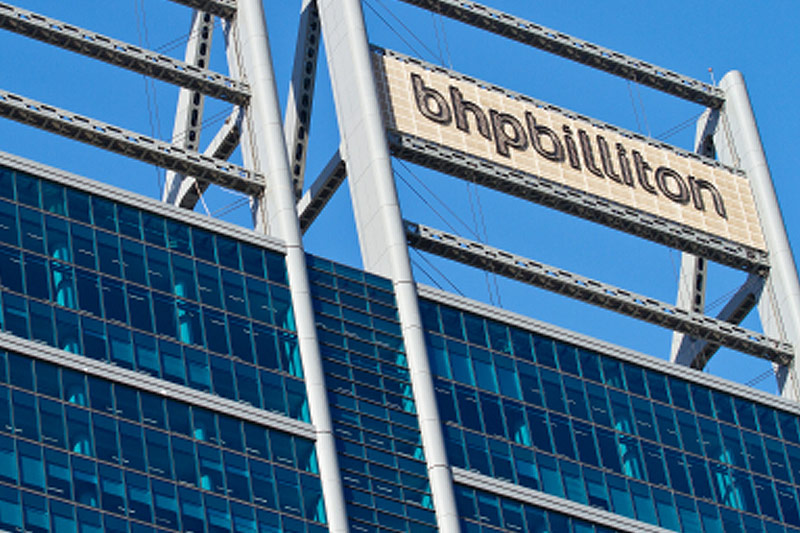(The opinions expressed here are those of the author, a columnist for Reuters.)
By Clyde Russell
LAUNCESTON, Australia, Aug 17 (Reuters) - While a record loss is certain to grab media headlines, the real story about BHP Billiton (LON:BLT) BHP.AX is far more sanguine as the company tries to prove that boring is better.
The $6.4 billion loss for the year ended June 30 was largely in line with expectations, and the main contributors of provisions for the dam disaster at the Samarco iron ore mine in Brazil and the writedown of the U.S. shale gas business had been flagged and well understood by the market. $1.2 billion in underlying profit was largely the result of the rout in commodity prices, and stands in stark contrast to the $21.7 billion in underlying profit for the year to June 2011, which was both the peak of BHP's earnings and commodity prices.
Andrew Mackenzie, the chief executive of the world's biggest mining company, was suitably cautious in his comments about the outlook for commodity prices, going only so far as to say there is now a sense that they are no longer in "free fall."
He was also keen to talk up the productivity gains already achieved and those still to come, as well as the expected doubling of free cash flow in the current 2016-17 year to $7 billion.
Overall, Mackenzie and his team most probably did the best job possible of presenting the company's worst results, and furthermore held out the strong likelihood of a significantly better performance in the current year.
But in some ways, what's most notable about the results presentation on Tuesday was what was absent.
There was no talk of major acquisitions, or significant new projects, rather the focus was on how disciplined the company will be with its capital expenditure and cost efficiency drive.
For many investors this will be a major relief, as commodity companies have a poor track record when it comes to adding value through acquisitions, with BHP's shale gas venture being a case in point.
Too often resource companies have bought at the top of the price cycle and then had to write down vast sums of money as the asset doesn't deliver the expected gains.
BHP's Anglo-Australian rival, Rio Tinto (LON:RIO) RIO.AX , has also had its share of expensive, troublesome acquisitions such as aluminium company Alcan and coal assets in Mozambique.
PLAYING TO STRENGTHS
By focusing on costs and cash generation, Mackenzie is basically saying BHP is going to play to its existing strengths of operating some world-class assets as efficiently as possible while riding out the current, and likely extended, period of subdued commodity prices.
In short, the company is going to become as boring as possible, much more like a utility or a bank with a strong focus on generating revenue without taking risks.
This is probably a workable strategy for now, as it provides some certainty that BHP will be able to deliver higher dividend payments in the current year, even if commodity prices stagnate at current levels.
It's a less viable strategy for the longer term, as eventually more money will have to be spent proving up new reserves, or making suitable acquisitions.
Investors may be happy to take higher dividends for a year or so, but no doubt will start to question what the long-term growth strategy is thereafter.
While BHP has committed to paying out at least 50 percent of underlying profit to shareholders, this may not be enough to tempt investors into what remains a cyclical business that hasn't rewarded a buy and hold strategy typical of many pension funds.
If you had bought BHP at the end of 2003 in the expectation that the emerging China boom would drive massive gains, you'd likely be disappointed.
The Sydney-listed shares were A$10.67 ($8.20) at the end of 2003, and by the close on Tuesday they were roughly double, at A$20.25.
In contrast, a major Australian bank such as the Commonwealth Bank CBA.AX has seen its shares rise 159 percent over the same period, meaning it has delivered a superior capital gain coupled with a progressive dividend policy.
The problem for BHP is that if it's going to be boring like a bank, it will have to deliver returns like a bank, a difficult challenge in a business as unpredictable and cyclical as commodities.
Disclosure: At the time of publication Clyde Russell owned shares in BHP Billiton, Rio Tinto and Commonwealth Bank of Australia as an investor in a fund.
(Editing by Richard Pullin)
